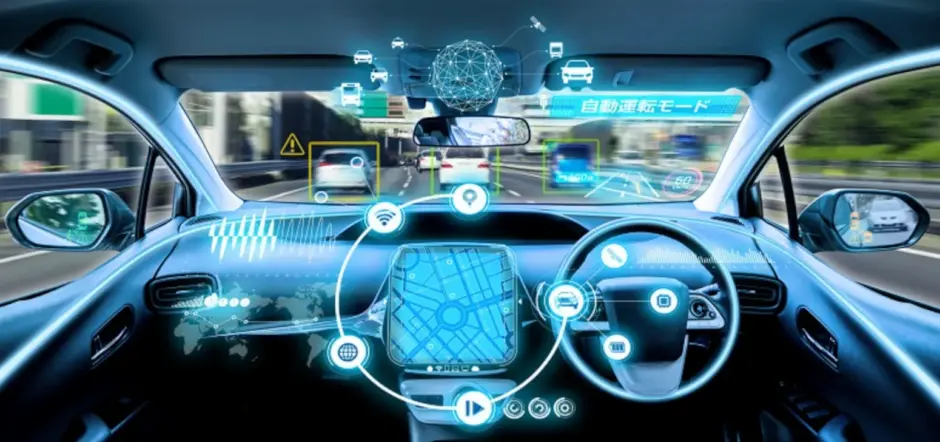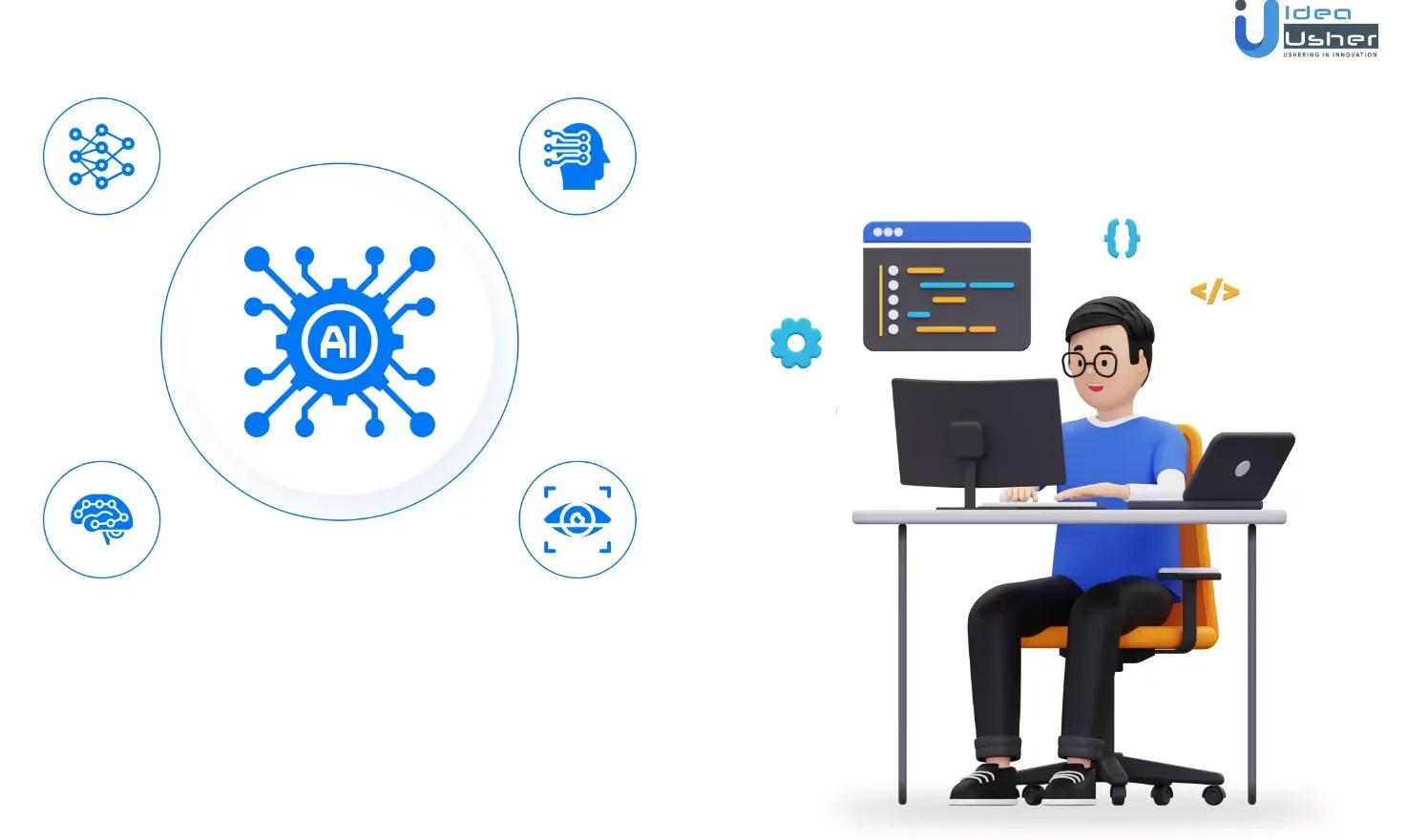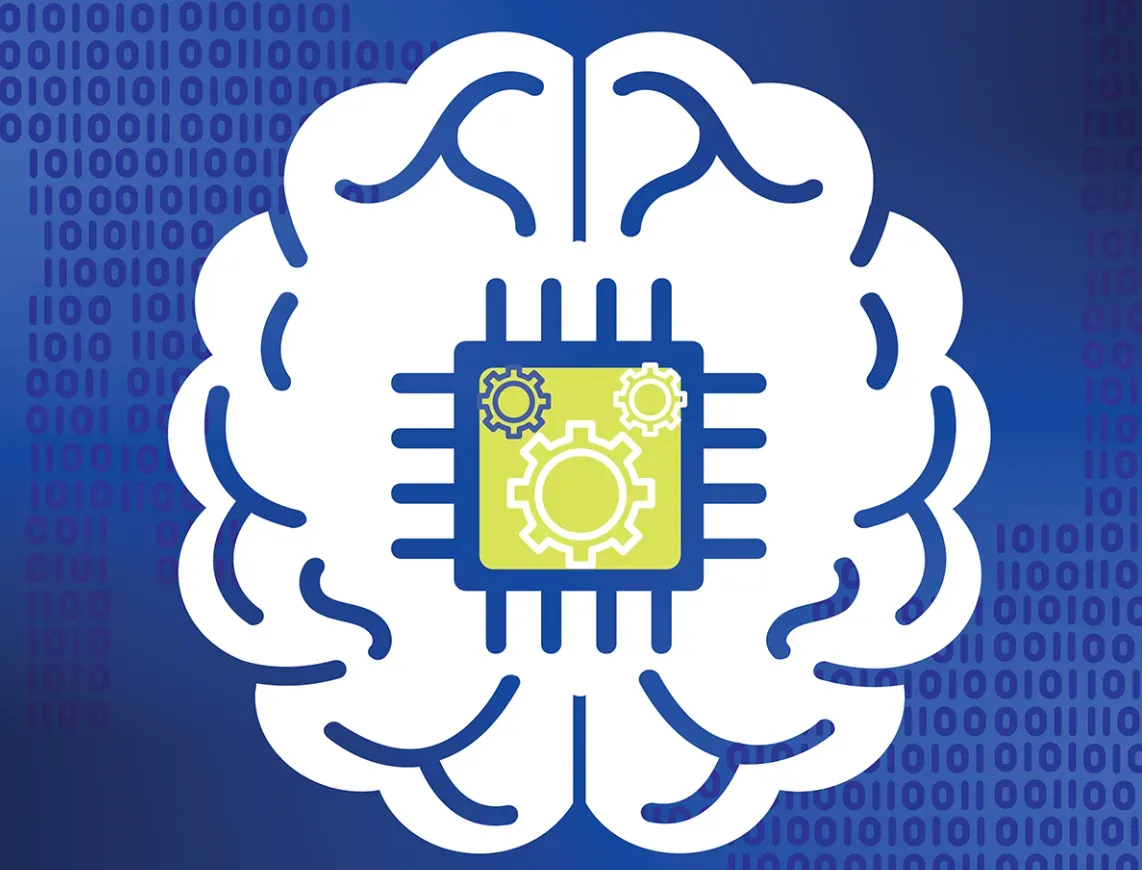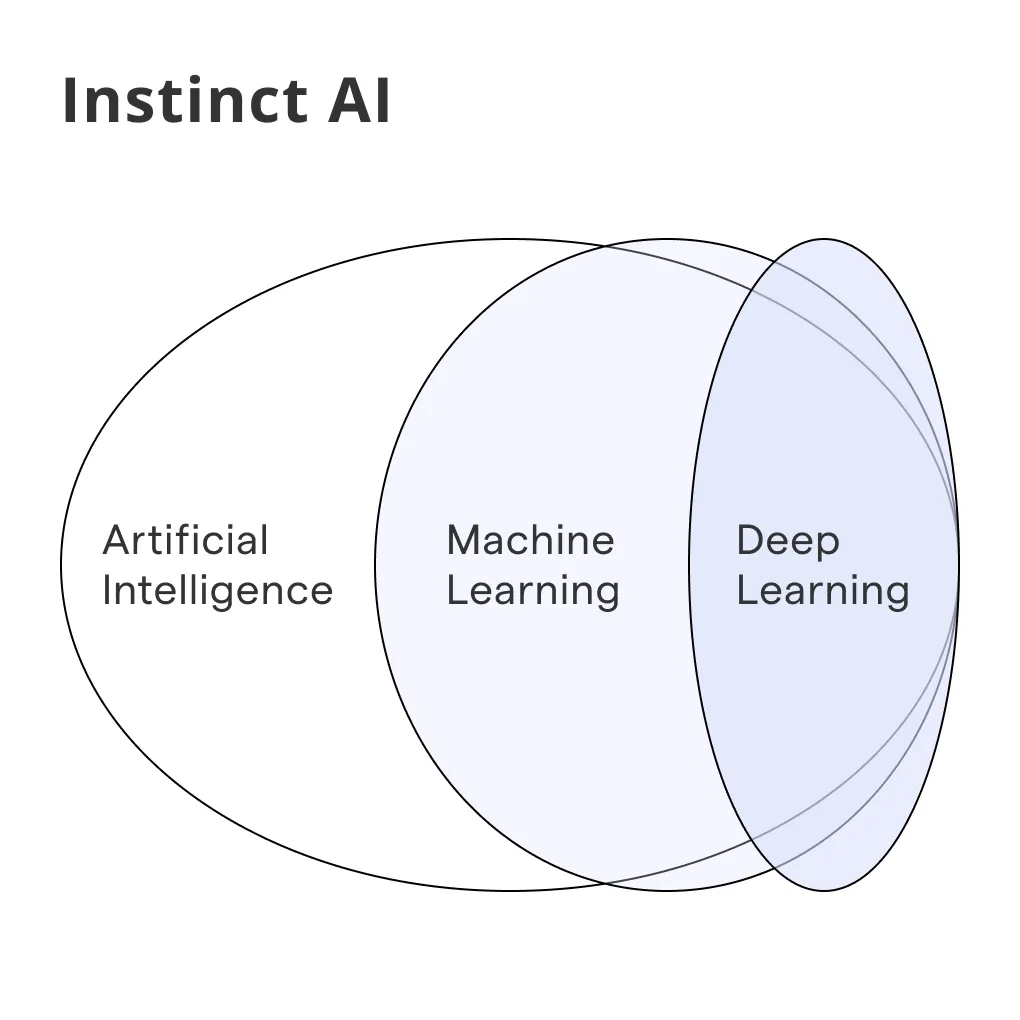What is Instinct AI?
Instinct AI refers to the replication and simulation of instinctual behaviors in artificial intelligence systems, aiming to create AI that can respond to stimuli in an instinctive manner, much like living organisms do.
Core Principles
The core principles behind Instinct AI revolve around reactivity, spontaneity, and adaptability—traits inherent to instinctive actions in the natural world.
Applications
From self-driving cars that instinctively avoid obstacles to AI-driven customer service bots that can sense a customer's mood and react accordingly, the applications are vast and varied.
Technology Involved
Understanding Instinct AI involves delving into neural networks, machine learning models, and cognitive computing, which form the technological backbone of this concept.
Significance
The significance of Instinct AI lies in its potential to create more intuitive, responsive, and adaptive AI systems that can better understand and interact with the natural world and its inhabitants.
Why is Instinct AI Important?
Diving deeper, let’s discuss why Instinct AI is not just another buzzword in the tech world but a fundamental leap towards creating more naturally interacting AI systems.
Enhancing Human-AI Interaction
Instinct AI promises to bridge the communication gap between humans and machines, making interactions more natural and intuitive.
Predictive Capabilities
By simulating instincts, AI can better predict and react to environmental changes or customer needs without explicit programming.
Real-time Decision Making
Instinct AI enables real-time decision-making capabilities, crucial for applications requiring immediate responses like autonomous vehicles.
Safety and Security
In critical scenarios, where there’s little margin for error, Instinct AI can provide systems the ability to act spontaneously to ensure safety and security.
Personalization
By understanding and reacting to instinctual cues, AI can offer personalized experiences, from shopping recommendations to tailored content feeds.
How Does Instinct AI Work?
Understanding how Instinct AI functions can provide insights into its innovative approach to combining innate behaviors with artificial intelligence.
Machine Learning Models
Instinct AI leverages sophisticated machine learning models that learn from vast datasets to predict and react instinctively.
Neural Networks
Mimicking the human brain, neural networks in Instinct AI enable the system to make spontaneous decisions based on learned patterns.
Data Processing
Rapid and efficient data processing allows Instinct AI to analyze and respond to stimuli in real-time, a key feature of instinctual behavior.
Reflex Actions Simulation
Instinct AI attempts to simulate reflex actions seen in natural instincts, enabling systems to act swiftly to specific triggers.
Continuous Learning
An ongoing process of learning and adaptation ensures that Instinct AI systems evolve, much like natural instincts refine over time through interaction with the environment.
Where is Instinct AI Used?
Instinct AI finds its applications in various sectors, each benefiting from its ability to act spontaneously and intuitively.
Autonomous Vehicles

Instinct AI is critical in enabling vehicles to make split-second decisions, from avoiding sudden obstacles to reacting to road conditions.
Healthcare
In the medical field, Instinct AI aids in quick diagnosis and automated patient monitoring, reacting to changes in patient conditions instinctively.
Customer Service
AI-driven chatbots and virtual assistants use instinctual cues to provide personalized customer interactions and support.
Security Systems
Instinct AI enhances security by enabling systems to instinctively identify and react to potential threats or anomalies.
Gaming
In gaming, Instinct AI creates more realistic and responsive non-player characters (NPCs) that act and react in a more human-like manner.
When to Use Instinct AI?
Knowing when to incorporate Instinct AI into projects or solutions can help optimize interactions and decision-making processes.
Need for Quick Decision-Making
In scenarios where rapid responses are essential, Instinct AI can provide the instinctive reaction capabilities needed.
High-Risk Environments
In environments where safety and security are paramount, Instinct AI's ability to act spontaneously can be crucial.
Enhancing User Experience
Creating more natural, instinctual interactions in consumer products can significantly enhance the user experience.
Complex Data Environments
When dealing with complex or vast amounts of data, Instinct AI's predictive capabilities become crucial for efficient processing and decision-making.
Dynamic and Unpredictable Situations
In situations where conditions change rapidly or unpredictably, Instinct AI's adaptability and responsiveness are highly beneficial.
Who Benefits from Instinct AI?
Several sectors and professionals stand to gain from the advancements in Instinct AI, leveraging its capabilities for various purposes.

Software Developers
Developers can create more intuitive and responsive applications, improving user satisfaction and engagement.
Data Scientists
Professionals in data science harness Instinct AI for predictive analytics and data interpretation, enhancing decision-making processes.
Product Designers
Designers utilize Instinct AI to craft products that better understand and respond to user needs and behaviors instinctively.
Healthcare Professionals
In healthcare, practitioners benefit from AI that can instinctively monitor and react to patient conditions, improving care quality.
Security Experts
Security professionals rely on Instinct AI for its ability to detect and react to threats automatically, fortifying protection measures.
Best Practices in Implementing Instinct AI
Achieving success with Instinct AI involves adhering to certain best practices that ensure effective and efficient application.
Align with Specific Needs
Identify and clearly define the specific instincts or reflexes you aim to emulate to ensure that the Instinct AI development is targeted and relevant.
Prioritize Data Quality
Given the reliance of Instinct AI on machine learning, ensuring high-quality, relevant data is crucial for its learning and decision-making processes.
Focus on Continuous Improvement
Instinct AI models should be continuously updated and refined based on new data and interactions to enhance their instinctual responses.
Ensure Ethical Use
Be mindful of ethical considerations, especially in applications affecting personal privacy or decision-making, to maintain trust and integrity.
Integrate Human Oversight
While Instinct AI can act spontaneously, integrating human oversight for critical decisions can safeguard against unforeseen issues or errors.
Challenges in Instinct AI
Despite its potential, implementing Instinct AI comes with its own set of challenges that need to be navigated carefully.

Complexity of Natural Instincts
Accurately replicating the complexity and subtlety of natural instincts in AI systems presents a significant technical challenge.
Data Privacy and Security
Handling highly sensitive data, especially when predicting human behavior, raises substantial privacy and security concerns.
Ethical Concerns
The potential for misuse or unintended consequences of instinct-driven AI actions necessitates careful ethical considerations and safeguards.
Integration with Existing Systems
Incorporating Instinct AI into existing infrastructures and systems can be complex, requiring significant adaptation and customization.
Scalability
As Instinct AI systems become more sophisticated, ensuring they are scalable and can handle increasing decision-making demands is critical.
Future Trends in Instinct AI
The future of Instinct AI is ripe with possibilities, driven by ongoing research, technological advancements, and innovative applications.
Evolutionary Algorithms
Incorporating evolutionary algorithms that simulate natural selection processes offers the potential for developing more advanced and adaptable Instinct AI models.
Enhanced Sensory Integration
Improving the integration of sensory data—from visual to auditory stimuli—can make Instinct AI systems more responsive and perceptive.
Cross-Disciplinary Applications
The fusion of Instinct AI with fields like psychology and neuroscience could unveil deeper insights into human behaviors and how they can be replicated in AI.
Personalization at Scale
Advancements in Instinct AI could enable unprecedented levels of personalization in services and products by understanding and anticipating user needs more instinctively.
Ethical AI Frameworks
Emerging ethical frameworks and guidelines specifically tailored for Instinct AI can help mitigate risks and ensure responsible development and use.
Frequently Asked Questions (FAQs)
What sets Instinct AI apart from other AI models?
Instinct AI incorporates bio-inspired algorithms making decisions through simulated 'instincts', enabling rapid responses in dynamic environments.
How does Instinct AI adapt to unseen scenarios?
Instinct AI uses learning mechanisms similar to natural instincts to quickly adapt its responses to unfamiliar situations with minimal prior data.
Can Instinct AI operate in real-time applications?
Yes, Instinct AI's quick adaptation and decision-making capabilities are well-suited for real-time applications that require immediate responses.
What advantages does Instinct AI offer in robotics?
In robotics, Instinct AI enhances autonomous decision-making allowing robots to react intuitively to environmental changes.
How does Instinct AI contribute to enhancing user experience?
Instinct AI can predict user behavior and preferences, swiftly personalizing content and interfaces, thereby improving user engagement and satisfaction.

